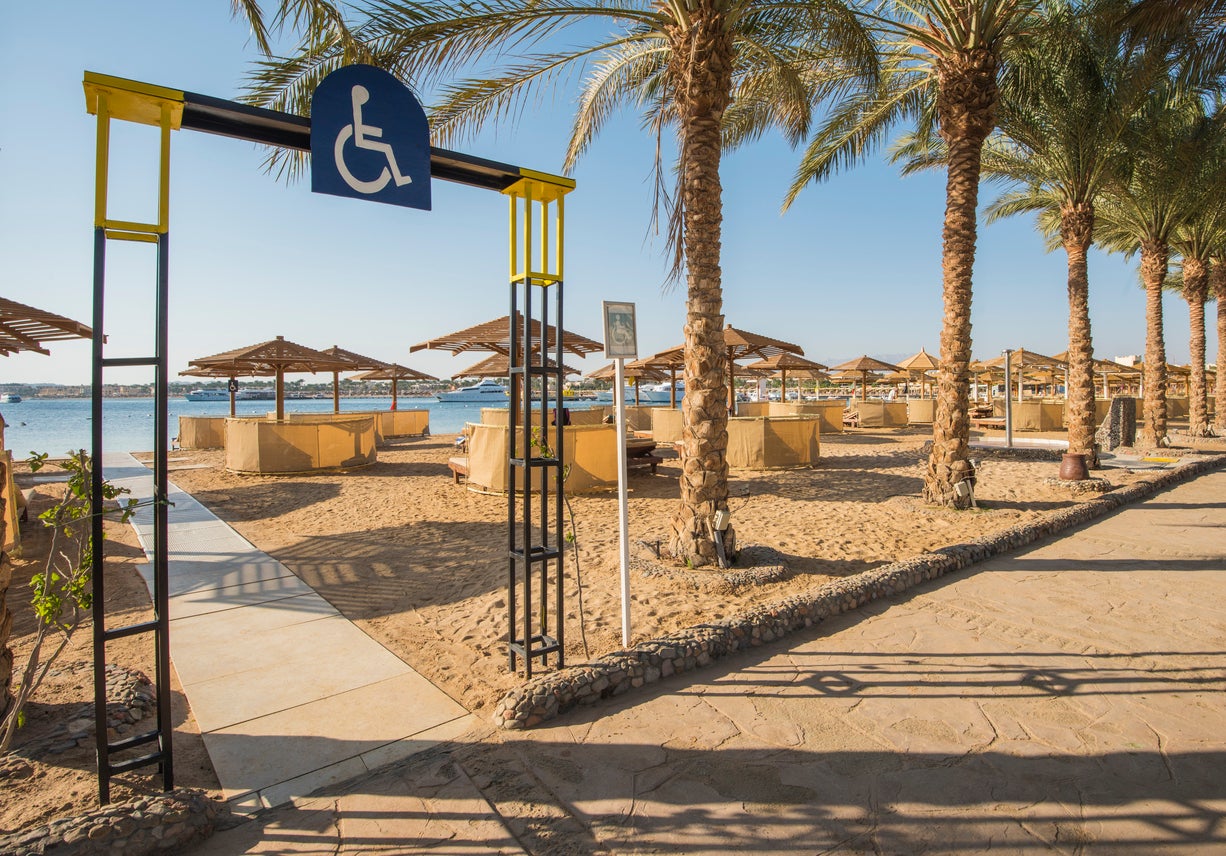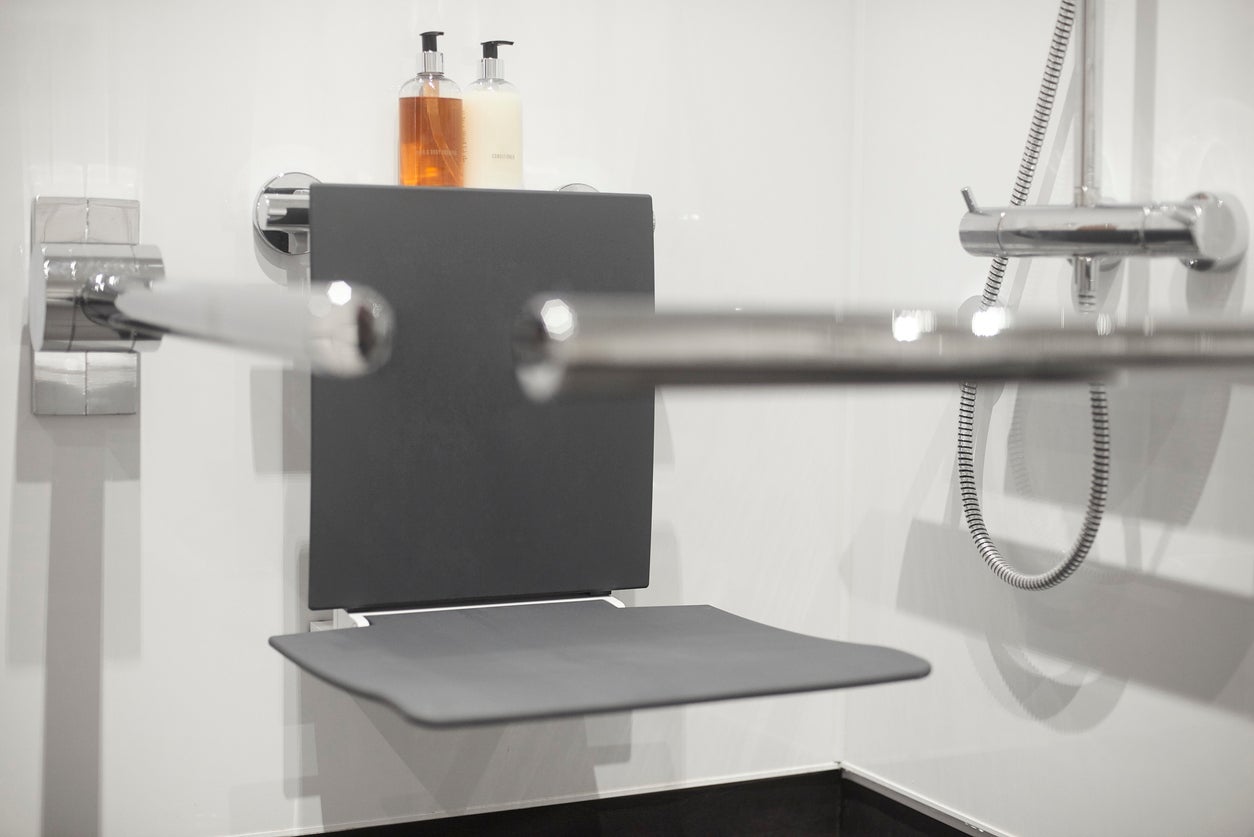The complete guide to booking a holiday as a disabled person
Finding the right trip when you have a disability can present extra challenges

Your support helps us to tell the story
From reproductive rights to climate change to Big Tech, The Independent is on the ground when the story is developing. Whether it's investigating the financials of Elon Musk's pro-Trump PAC or producing our latest documentary, 'The A Word', which shines a light on the American women fighting for reproductive rights, we know how important it is to parse out the facts from the messaging.
At such a critical moment in US history, we need reporters on the ground. Your donation allows us to keep sending journalists to speak to both sides of the story.
The Independent is trusted by Americans across the entire political spectrum. And unlike many other quality news outlets, we choose not to lock Americans out of our reporting and analysis with paywalls. We believe quality journalism should be available to everyone, paid for by those who can afford it.
Your support makes all the difference.Before my brush with a spinal cord injury earlier this year, the worst travel mistake I’d ever made was to think Girona airport was anywhere near Barcelona. With my newly acquired mobility issues, travel for me has become something that intimidates me, but something I still desperately want to do (as does my six-year-old son, George).
The thing is, although lots of tour operators and hotels are keen to talk about how accessible they are, being truly open to those with disabilities is about so much more than having a few ground-floor rooms and level-access showers. The facilities that I want – and need – in order to have a fun-filled, stress-free holiday are not going to be the same for every one of the nearly 14 million disabled people in the UK.
Here are some of the most useful things I’ve learnt about travelling with a disability.
Do your research
Draw up a hit-list of people you want to talk to before you book anything – you could start with an organisation that understands your condition, such as the spinal injuries association. You could also join a relevant Facebook group and ask fellow members for their successful holiday stories – and also the ones that didn’t go so well.
The details you need will be unique to you, but there will be common ground and potential pitfalls you haven’t thought of. This will help you prepare a list of questions to ask your airline, tour operator and hotel – before you book anything.
All airports within the EU are legally obliged to offer assistance to disabled travellers, as long as you let them know when you book, but what this help consists of really seems to vary. The practicalities of getting your wheelchair or any other equipment that you need on a flight, such as oxygen, also seem to vary hugely, so phone the airline before you book anything to ensure everything will go smoothly before you part with any cash.
Question everything
Don’t be afraid to question everything, no matter how small a detail it might seem. It could make all the difference to your trip. To give you a flavour of what you might need to know, some of the questions I have asked include:
- What assistance will I get at the airport and how will I get on the plane?
- Does the hotel have any rooms that have showers with seats in them?
- Are there handrails on all your stairs?
- How is the pool accessed?
- How low is the seating in the lounge area?
- Can I book private transfers and what will the cost be?

Consider a staycation
For the newly disabled, like me, the thought of going to another country and the challenges of long-haul travel may be too far out of the comfort zone, so you might be better starting with a short break in the UK. The same rules apply when it comes to research – think about all the things you have at home that make living an independent life possible, and find a hotel or resort that can offer a similar set-up.
If you just want a simple, self-catering trip to somewhere gorgeous, then you could start by searching on Airbnb. It acquired disabled travel company Accomable last year and you can now search, with an admirable amount of detail, for disabled-friendly accommodation with filters such as roll-in shower and pool with hoist. An added bonus is that you can speak directly to the property owner with any further queries you have.
Is it better to go with a specialist tour operator?
Anything with the word “specialist” attached usually sets off my “these people are going to fleece you” klaxon, but it really can be of huge benefit to book your holiday with someone who knows where you’re coming from. It seems like those who really get disabled travel are those who have experienced it themselves, and some of the most appealing holiday recommendations I have been given are run by those who are disabled themselves or have disabled family members. One notable example is the Stagecoach Trails Guest Ranch in Yucca, Arizona, which was created by the parents of a wheelchair user and offers “barrier-free” riding holidays. With adult prices starting at £1,359pp (two sharing), full board, it’s not a budget option but isn’t extortionate either.

Ask the experts
Don’t be afraid to contact somewhere you like the look of and ask them all your questions – if they can’t be bothered to answer, then they probably aren’t the right type of accommodation for you anyway.
Any place worth visiting will understand that you want a beautiful hotel room and not one that will give you flashbacks to being in hospital. They will understand that you want to be able to get in and out of the pool with the rest of your family. And they will understand that you are far more than just a wheelchair or a pair of wobbly legs.
Disabled travel don’ts
Don’t book a holiday according to your “best day”. One thing I’ve learnt this year is that being disabled is not a fixed thing. Some days I can walk six metres, other days I struggle.
Don’t take anyone’s word for it that something is “accessible” – this means different things to different people and only you know what you need. One example is a shower with no step – great that it’s level access, but if I can only stand up for 60 seconds, not much use.
Don’t go too big too soon – start with a short break not too far away from home before you book that trip-of-a-lifetime to New Zealand.
Don’t put up with shoddy service – if the disabled facilities at a hotel are lacking, then tell the management. There are almost 14 million of us in the UK alone; our opinions matter.
Join our commenting forum
Join thought-provoking conversations, follow other Independent readers and see their replies
Comments